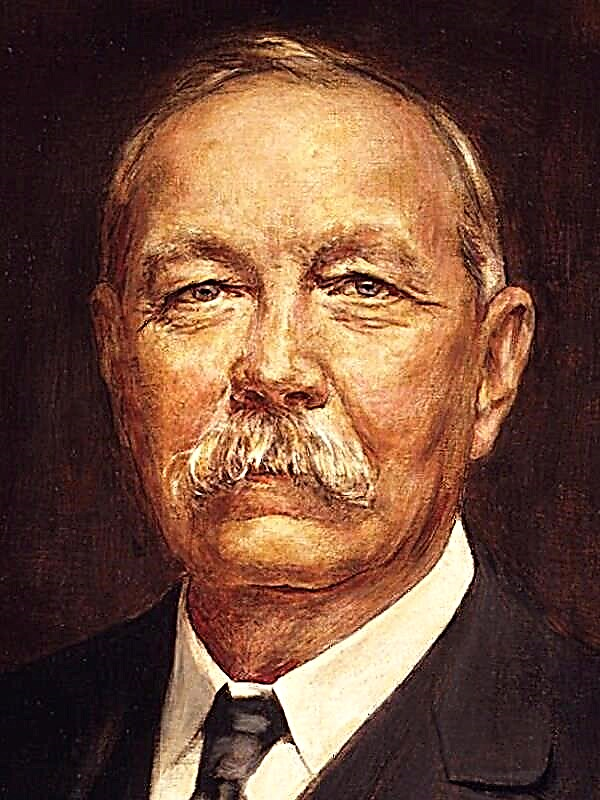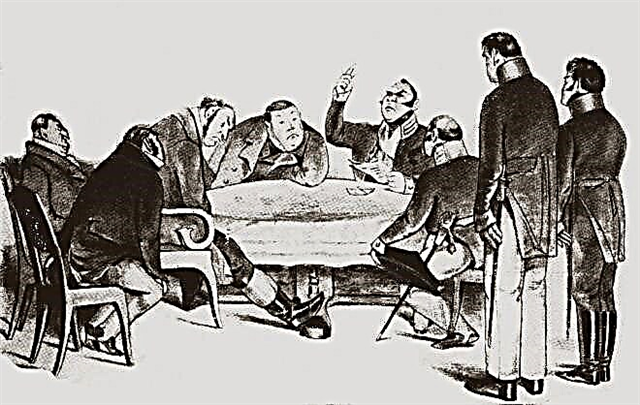The famous fiction writer R., after a three-day trip to the mountains, returns to Vienna and, having looked at the number in the newspaper, recalls that on this day he turns forty-one. After reviewing the accumulated mail, he lays aside a thick letter written in an unfamiliar handwriting. After a while, sitting comfortably in an armchair and lighting a cigar, he prints a letter. Neither the name nor the address of the sender are on it or on the envelope. The letter begins with the words “to you who never knew me,” and it is not clear that this is a message or a headline. Intrigued, R. plunges into reading.
The stranger writes about how she first saw R. She was thirteen years old when R. settled in their house. The poor widow's daughter, the girl watched him with admiration, he seemed to her the embodiment of a distant, beautiful life, inaccessible to her. She sat for hours in the hallway to see him through the peephole, kissing the door handle to which he touched. Once she even managed to visit his apartment: in the absence of the owner, the old servant knocked out the carpets, and the girl helped him drag them back. But after three years, the girl had to leave: her mother remarried, and a wealthy stepfather took her with the girl to Innsbruck. Before leaving, the girl gathered courage and rang the doorbell of her idol. But nobody came to her call: obviously, R.was not at home. She waited for his return, ready to rush at his feet, but, alas, he did not return home alone: there was a woman with him.
In Innsbruck, the girl lived for two years: from sixteen to eighteen years old. Neither a prosperous life, nor the care of her parents, nor the attention of her fans distracted her from thoughts about her beloved, and she, at the first opportunity, rejecting the help of her relatives, went to Vienna and entered a ready-made dress store. Every evening she walked after work to the house of R. and stood for hours under his windows. When she once ran into him on the street, he did not recognize her former neighbor. He never recognized her. Two days later he met her again and invited her to dinner together. After the restaurant, he invited the girl to his place, and they spent the night together. In parting, he gave her white roses. Then he invited the girl to his place twice more. These were the happiest moments of her life.
But R. needed to leave. He again gave her roses and promised to notify the girl immediately upon his return, but she did not wait a single line from him. She had a baby, their common child. She left work, was in poverty, but did not want to ask for help from either relatives or him: she did not want to bind him, did not want to arouse mistrust in him, did not want him to help her only out of pity or out of shame. The stranger gave herself all to the child, and R. only reminded herself of herself once a year: on his birthday, she sent him a bouquet of white roses - exactly the same as he gave her after the first night of their love. She still does not know if he understood who and why is sending these flowers to him, whether she remembered the nights spent with her.
So that the child does not need anything, the stranger became a kept woman, she was very pretty, had many fans. It happened that lovers became attached to her and wanted to marry, but deep down in her heart she still hoped that R. would someday call her, and was afraid to lose the opportunity to respond to his call. Once in a restaurant where a stranger was with friends, R. saw her and, not recognizing, mistook her for a cocotte. He called her to him, and she followed him right from the middle of the evening, not thinking about what offends the person with whom she came, without saying goodbye to anyone, without even taking a mantle from the hanger, because her friend had the number. They spent the night together again. And in the morning R. said that he was going on a trip to Africa. She timidly remarked: “What a pity!” He said that they always come back from travel. “They return, but having time to forget,” she objected. She hoped that at that moment he would recognize her, but he did not. Moreover, when she was about to leave, he furtively slipped money into her sleeve. She made her last attempt: she asked him for one of the white roses standing in a blue vase. He readily handed her a flower. He explained that he did not know who was sending him the flowers, and that was why he loved them. “Maybe they, too, are from a woman forgotten by you,” said the stranger, glancing beseeching him to recognize her. But he looked at her affectionately and incomprehensibly. He never recognized her.
Running out of the apartment, she almost collided with his old servant. When she looked through the tears at the old man, some kind of light flashed in his eyes: she was sure that he recognized her, although she had never seen her since her childhood.She grabbed the money that R. had paid her from the clutch and put it in the old man. He looked at her in dismay, and at that moment he knew more about her than R. in his entire life.
The child of a stranger has died. Feeling that she herself was getting sick, she decided to write R. a letter and reveal the secret of her love for him. He will receive this letter only if she dies. She asks him in memory of her once a year to buy white roses and put them in a blue vase.
After reading the letter, R. sits for a long time thinking. Vague memories wake up in him - about a neighbor's girl, about a girl she met on the street, about a woman in a night restaurant, but he cannot remember her face. Suddenly his gaze falls on a blue vase. For the first time in many years, it is empty on his birthday. “He felt the breath of death and the breath of immortal love; something revealed in his soul, and he thought of the past life as an ethereal vision, as distant passionate music. "


 Thinking traps
Thinking traps








